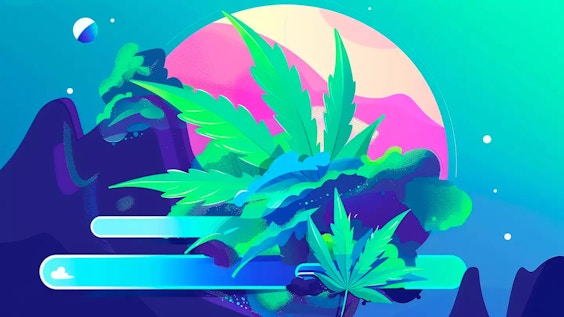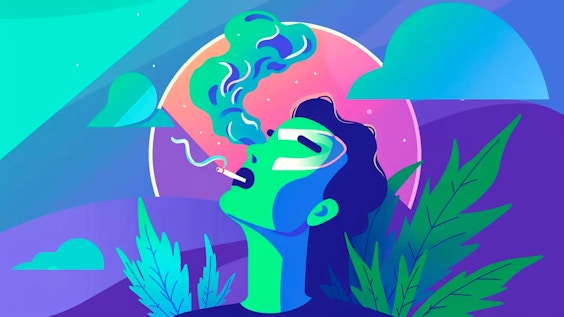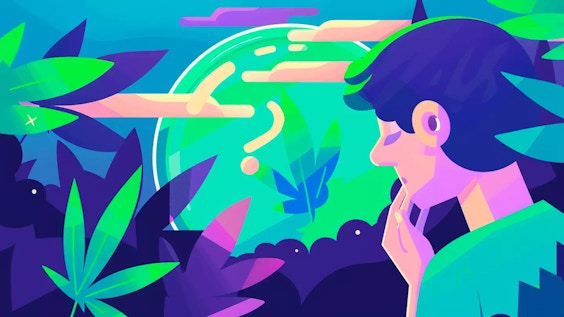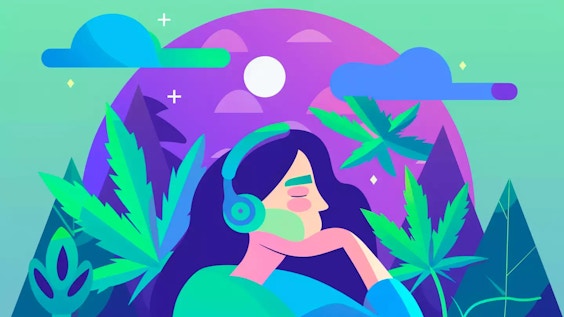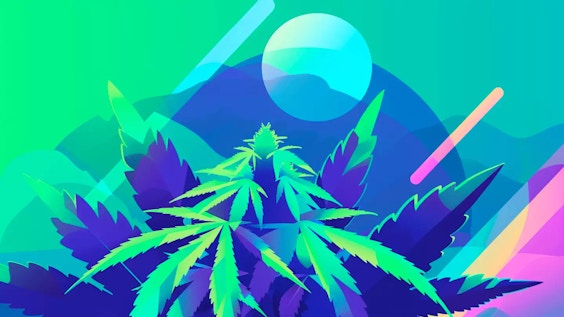I Am Sober is a free app that helps you get some control back in your life.

30 Days Without Weed
Last Updated: Wed, March 27, 2024Much like alcohol before it, marijuana is becoming more accepted, more legal, and more accessible. And, while some medical institutions prescribe marijuana for pain relief or to encourage appetite (especially after undergoing radiation treatment), people who suffer from Marijuana Use Disorder should be cautious about such prescriptions should they arise. Much like opioid addicts who often need to refuse pain medication due to addiction, so too should frequent marijuana users be wary. This is not to say that marijuana is as dangerous as cocaine, alcohol, or even tobacco, but addiction is a disorder. When you've reached a point where your end goal to each day is to get high; when you've discontinued activities and social events if they prevent you from getting high or only to get high; when you find it difficult to get through the day without getting high, these are problems that need to be addressed.
One of the benefits of marijuana becoming more legal and wide-spread is the prevalence of research and studies on the drug. There has been a lot of misinformation about cannabis and addiction in the past, however now we're starting to see the real issues that repeated (and heavy) marijuana use can cause, such as memory loss, disrupted sleep, inability to learn, lowered attention span, increased risk of lung cancer (in the case of smokers) and heightened anxiety. Many people with frequent and long-term marijuana use become dependent on the drug and may need help to recover.
With that in mind, here's what to expect with your first 30 days without weed.
Day 1: Cravings, Cravings, Cravings
For those addicted to marijuana, withdrawal symptoms can start as early as 24 hours since your last use. Most people report feeling intense cravings their first day without weed. They feel cloudy & lethargic, but the worst element is the cravings.
For some, the cravings are a result of being dependent on the drug; for others, it provided a comfort or escape from what they were feeling. In either case, formerly frequent users will notice how ingrained the drug was in their routine, which can make their day seem all the more alien without it.
Day 2: Anxiety & Poor Sleep
By day two, most people are struggling with sleep and some are facing anxiety.
Most people with Marijuana Use Disorder reportedly use some form of cannabis before sleep -- wrongly thinking it helps. The reality is, marijuana can help relax the body before bed -- helping you to fall asleep -- but it inhibits deep, restful REM sleep. Those dependent on marijuana have difficulty falling to sleep on their own, but once sleep occurs, it will be much more restful (with a happy helping of vivid dreams).
Day 3: Peak Withdrawal Symptoms
Day 3 is the peak withdrawal symptoms with many frequent and heavy users experiencing severe sleep deprivation due to insomnia and increased irritability. The mental and physical distress of not having marijuana in their system can cause angry outbursts and heightened frustration.
While day 3 can be challenging, from this point, most side effects get better even if not all at once.
Day 4-5: Sweet Dreams
Although anxiety tends to increase during this time for many in recovery, sleep usually comes naturally and easily. What's more, many report vivid dreams which, according to some, is due to a "dream debt" that's been built up over a long period of time.
That said, although uncommon, some people with severe symptoms experience vivid nightmares. In many cases however, this can have more to do with emotional distress that has gone unchecked since the heavy pot use began.
Day 6-7: Anxiety Improves; Appetite Issues
By day 6, most marijuana users in recovery report their anxiety improving although it's important to note that this can vary for people who have suffered from anxiety prior to using marijuana versus those that started having anxiety issues during or after.
At this point however, one element that can worsen for some people is appetite. Many report feeling less hungry and being disinterested in food. One thing that can help during this time is exercise.
Days 8-9: Feeling Feelings Again
During the second week of marijuana abstinence, most people are experiencing a net positive in their day-to-day feelings. For those that used marijuana as an escape or to block their feelings, they start to feel whole. Many have caught up on sleep and seen their anxiety improve and as a result, feel better now than they have in a long time.
There are some, who experience heightened anxiety at this point (even if they were feeling better a day prior), however after this period, anxiety appears to universally improve.
Days 10-11: Memory Improves, Vocabulary Increases
By day 10, many people experience a sharper mind. They're able to problem-solve faster, converse faster, and experience better recall. In addition, numerous studies have found that heavy-marijuana users in recovery start to have a much more expansive vocabulary becoming more articulate.
Days 12-14: Mental Wellness
By two weeks without marijuana, many report feeling more mentally healthy. Many feel more patient, more deliberate, and more self-respect. Feelings like anxiety, paranoia, and guilt tend to have decreased significantly, if not disappeared altogether.
Week 3: Physical Health
In the third week without marijuana, many people notice a significant change in their physical health as well. They have more energy, better sleep, and see a noticeable improvement in their skin. For those who mostly smoked marijuana, they noticed an improvement in their vision as well.
In addition, many users in recovery by this time are eating better overall. No more late night snacks or empty carbs from sugar-rich foods. Most start to have regular meals at consistent time periods.
Week 4: Better Relationships
By this point, many marijuana users in recovery notice that with their improved memory and attention span comes improves relationships. Instead of being in their own head or enjoying the euphoria of an artificial high, many in recovery feel closer to their friends, loved ones, and family.
Additionally, many report being more driven to pursue other areas of self improvement, be it creatively or personally.
Day 30 & Onward: Breathe that Fresh Air
Within a month, most people felt better rested, more creative, more in touch with themselves (with old memories resurfaceing) and others -- able to connect with others on a much deeper level.
One of the most fascinating elements of sobriety is finding out how much time and money is dedicated to the drug. Once you've endured withdrawal, you enjoy your time more, feel more self-confidence, and experience better health overall.
Marijuana addiction is real and withdrawal can be severe, but you can get through it.
I Am Sober is a free app that helps you get some control back in your life.
